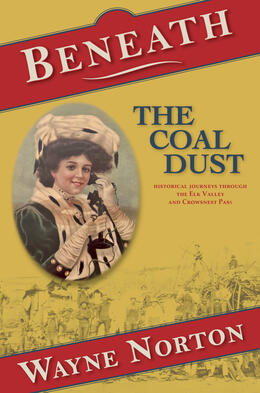BC History
Beneath the Coal Dust
In Beneath the Coal Dust, author Wayne Norton digs deep, exploring the fascinating and sometimes sobering stories of the mining communities in the Elk Valley and the Crowsnest Pass. In this new collection, ...
River of Mists
In River of Mists, best-selling author and award-winning historian Geoff Mynett returns to the Skeena River community of Hazelton to shed new light on the wide spectrum of characters who left their mark ...
Talking to the Story Keepers
In Talking to the Story Keepers: Tales from the Chilcotin Plateau, writer and journalist Sage Birchwater gathers dozens of stories spanning decades in the Cariboo Chilcotin from those who hold onto stories ...
Deadly Neighbours
On a cold night in February, 1884, just metres north of the border on Sumas Prairie, BC, an Indigenous boy named Louie Sam was lynched by a mob of mounted vigilantes. The vigilantes had ridden up from ...
Murders on the Skeena
Part history, part true crime, Murders on the Skeena: True Crime in the Old Canadian West, 1884-1914 contains the true accounts of murders, crimes, and scandals--some of which remain unsolved to this day--in ...
Chiru Sakura—Falling Cherry Blossoms
At eight years old, Grace Eiko Nishikihama was forcibly removed from her Vancouver home and interned with her parents and siblings in the BC Interior. Chiru Sakura—Falling Cherry Blossoms is a moving ...
Pinkerton's and the Hunt for Simon Gunanoot
Pinkerton's and the Hunt for Simon Gunanoot throws new light on the extensive manhunt for an accused murderer in northern British Columbia in the early 1900s. After a double murder in 1906, Gitxsan trapper ...
Our Backs Warmed by the Sun
For many, the Doukhobor story is a sensational one: arson, nudity and civil disobedience once made headlines. But it isn't the whole story. Our Backs Warmed by the Sun: Memories of a Doukhobor Life is ...
Cataline
In the early days of British Columbia, pack trains of horses or mules were a lifeline for the early pioneer population. Explorers, trappers, traders, miners, merchants, workers and settlers and relied ...
The Kissing Fence
1950s, New Denver: Pavel and Nina are among 200 Russian Doukhobor children separated from their families and community, and placed in a residential facility in the Kootenay region of BC. Forcibly removed ...











